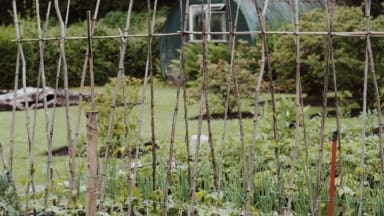
With greater awareness of the impact of gardening on mental and physical wellbeing, gardening spend is on an accelerated trajectory, showing robust growth since 2020. Developed markets continue to spend more on their gardens, with the fastest growth coming from emerging markets.
Sacrificing lawns
Lawn mowers are being used less, extending their product lifecycle but also indicating that once they’ve snuffed it, mowers are not being replaced. The latter indicating no need for their usage and hence removal of lawn(s).
As a portion of gardening spend, lawn mowers have decreased to 6% in 2022 from 2008 (8%) which according to Euromonitor International shows the gradual decline of lawn space as other garden priorities rise – a pattern of change that is even more prevalent in North America.
Grow your own
The pandemic, the desire wanting to be part of the solution to the cost of living crisis and climate change by growing one’s own produce isn’t slowing down, and continues to be a priority. According to the market researcher the growth, attributed to the rapid rise of new gardeners during the pandemic, isn’t slowing down, with growth lasting well into the hybrid working period. “Grow-your-own is a consistent trend that boosted garden demand across the world, up 11% in real terms in 2022 versus pre-pandemic 2019”, reports Euromonitor International.
The data indicators reveal that the grow-your-own trend is the reason for lawn space reduction/removal as spend is being converted to compost sales and decorative plants (stronger in emerging markets). “Both drivers motivate adding more beds (especially raised beds) and planters, taking space away from lawns, and the greatest need for compost comes when repurposing ground, not just rotating crops within existing growing spaces”, reports the researcher.
Commerce leading the way on peat-free
In the UK regulation into peat is at an advanced stage with the ban coming into effect for retail compost in 2024, with nurseries and plant growers to follow by 2030. This is not the case for other countries, where peat usage in compost and subsequent is a matter of ethics topic rather than regulation. The Netherlands does have a reduction scheme, but with a 2050 timeline.
However, whilst other governments may not be a hurry to legislate, commerce is pushing the issue internationally. Two of the top three manufacturers of compost are UK based with it’s stringent peat regulation. UK compost companies are therefore advanced in their innovation on peat-free alternatives and promoting sustainable exports in other markets. The UK peat policy is therefore driving peat-free investment across the markets.
